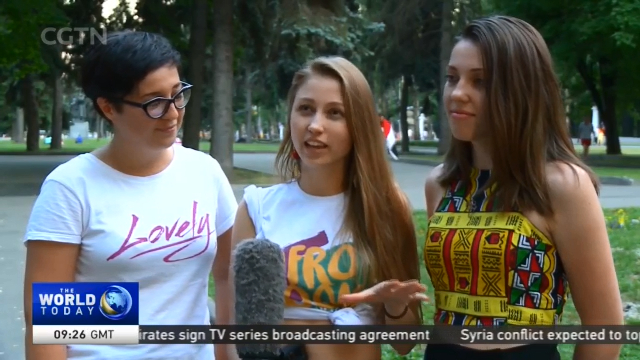
17:38, 15-Jul-2018
2018 FIFA World Cup: Dancers promote African culture in host nation
Updated
17:38, 18-Jul-2018
03:03

African teams may be all out at the World Cup, but African culture lives on through dance in Russia. The European nation may not be the first place you think of when you think about African dance, but one all-girls group in Moscow wants to change that. The Donga Girls use their love for African beats to dance styles from across the continent, aiming to widen exposure of the art across Russia.
Dancing to a different beat in the Russian capital. This trio has made a name for themselves for their love of African dance. Dancing a wide variety of African styles like Dombolo, Coupe Decale, Azonto, Afro House, Djazze, and Kuduro, the Donga Girls are living out their passion for the art form.
IRINA KITACULO MEMBER OF DONGA GIRLS "We are also passionate about this culture, about this music, people. Not only dance. We also make our research all the time, learn whenever we go outside, to Europe or Africa. We've been there, so we're trying to travel more and more, and look for people who can give us information."
And with the World Cup coming to Russia, the trio especially caught the eye when they threw their support behind two African sides, dancing for Nigeria and Senegal.
JULIA SOLOVYEVA MEMBER OF DONGA GIRLS "We just decided to support Africa. African countries and culture. If there were more countries, like Angola, we'd support them also. It's about supporting Africa. We're not football players, frankly speaking, but we support Africa -- anywhere -- when we can."
With the advent of the internet, the girls now use their burgeoning online platform on sites like Youtube, to spread their art beyond just Moscow.
MAHIA MUTUA MOSCOW "Aiming to bring out African culture in a nation where the continent's advances haven't been fully welcomed, groups like the Donga Girls are prying the door open, one dance at a time."
Through their love for dance, the Donga Girls are hoping to change not just the image of African culture in Russia, but also that of outsiders towards Russians themselves. MAHIA MUTUA, CGTN, MOSCOW, RUSSIA.

SITEMAP
Copyright © 2018 CGTN. Beijing ICP prepared NO.16065310-3
Copyright © 2018 CGTN. Beijing ICP prepared NO.16065310-3